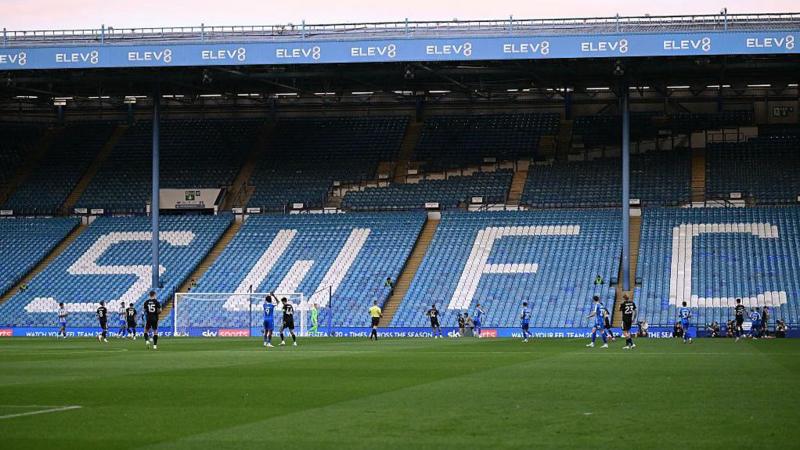Sheffield Wednesday Fans Boycott EFL Cup Clash in Protest



On a crisp Tuesday evening, when the lights at Hillsborough Stadium usually light up the Sheffield skyline, there was something palpably different in the air. The expected buzz surrounding Sheffield Wednesday's Carabao Cup clash with Leeds United was notably absent, replaced instead by a somber atmosphere as thousands of fans chose to vacate their usual spots in the stands.
The conspicuous rows of empty blue and white seats served as a silent but powerful statement against the club’s current ownership. This protest is part of an ongoing sentiment of dissatisfaction from a significant section of the fanbase, stemming from growing concerns over how the club is being managed.
The discontent traces back to issues that have been simmering for years, particularly regarding financial management and strategic decisions perceived to be at odds with the club's long-term welfare. Many fans feel that there has been a lack of transparency and communication from the top, making it hard to understand the direction in which their beloved club is heading.
Ownership disputes are not new in football, but they take a profound toll when the passion of a city as football-loving as Sheffield is at stake. Sheffield Wednesday, with a history dating back to 1867, isn’t just a football club; it represents a community and a sense of identity for many of its supporters. Thus, when the core fanbase feels disconnected from the administration, it resonates on a deeper, more personal level.
Recently, frustrations have been exacerbated by the team’s performance and results, a slump most fans attribute to larger underlying issues within the club's governance. Although Leeds United were the opponents this time, the match was seen by many as an opportunity to make broader points that go beyond the 90 minutes of play, emphasizing concern for the club’s future rather than immediate results on the pitch.
The decision by thousands to stay away from Hillsborough is a demonstration that, to them, the sanctity and success of Sheffield Wednesday are non-negotiable. Choosing to leave their seats empty was a collective hope that their absence would be felt as a loud call for change at a higher management level. Moreover, it’s a plea for the owners to engage more openly with their most staunch and loyal supporters—the fans.
On social media, the mood mirrored the emptiness of the stands. Hashtags like #SaveOurOwls and #WednesdayTillIDie trended, with fans sharing pictures of their unused tickets and expressing their reasons for participating in the boycott. Many posts were poignant, reflecting a mixture of heartache and hope, the sentiment of lovers feeling let down yet longing for reconciliation.
The overwhelming chorus of fan voices cannot be ignored indefinitely by the club’s hierarchy. Engagement and decisive action will be crucial in mending the growing rift between the ownership and the base. History has shown that clubs thrive when there is harmony between those managing and those supporting. For a club like Sheffield Wednesday, steeped in tradition and supported by generations of families, the preservation of this relationship is essential.
Contrary to its usual evenings, where the echo of cheers and chants normally fill the grounds, Hillsborough’s quietness on this match day encapsulated more than just a protest—it was a heartfelt message from the fans to the stewards of their beloved club. As the team played on the pitch, the real match was being contested in the stands, or rather the lack of them, a game where what’s at stake is the very soul of Sheffield Wednesday. As both sides look to the future, it is clear that the road to reconciliation and recovery will require open dialogue, compassion, and a committed action plan that resonates with the core values of the fanbase. Only time will tell if these calls for change will herald a new chapter for the club.